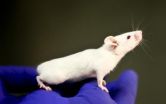(Press-News.org) WASHINGTON – Cyclists in Washington, D.C. who use Capital Bikeshare for their daily commutes are much less likely to wear helmets than commuters on their own bikes. That is the finding from an observational study conducted by Georgetown University School of Nursing & Health Studies (NHS) researchers that compares the rate of helmet use of casual and commuting Bikeshare riders with private cyclists. The research was published today in the American Journal of Public Health.
Bike sharing is a popular option for transportation in the interest of personal fitness and environmental protection. Washington, D.C. is home to one of the largest bicycle sharing programs in the United States, Capital Bikeshare, and the concept has rapidly expanded to other cities, such as New York City and Chicago.
"Cycling is a healthy activity which both improves heart health and reduces air pollution, and we want to encourage it, but we also want to be sure riders are as protected as possible should they be in a crash," explains John Kraemer, JD, MPH, assistant professor of health systems administration at NHS and the study's lead author. "While Capital Bikeshare bicycles are designed to lower the risk of a crash occurring, with a lower center of gravity, heavier frame, lights, and reflective paint, helmets are essential for preventing serious injury in the event of a crash."
For the study, the researchers classified cyclists as likely commuters or casual users based on the time of day and location of their travel. The researchers observed commuters weekdays during rush hours and casual or tourist use in the afternoon on weekends in areas known as tourist destinations. They visually observed if all riders—those using the marked Capital Bikeshare bicycles or riding a private bike—were wearing a helmet. They also noted the riders' sex and approximate ages. These observations took place over the course of 30 days in the fall.
"The most surprising finding was the relatively low use of helmets among commuters using Bikeshare," Kramer adds. "We figured that casual users would be unlikely to wear helmets because many are tourists. But we thought that commuters—people who plan their rides—would be more likely to wear helmets than they appear to be."
The researchers concluded that out of the total 2,297 cyclists observed in the 30-day period (1,140 commuters and 887 casual riders), 10.1 percent of commuters and 12.4 percent of casual riders were Bikeshare users. Of those using Bikeshare, helmet use was significantly less compared to private cyclists. For example, 70.8 percent of commuters on private bicycles wore helmets, compared to only 33.1 percent of Bikeshare commuters.
Kraemer sees an opportunity for increased helmet use among commuters who are both likely to be more frequent riders and more susceptible to interventions with such efforts as targeted marketing messages or incentives. Capital Bikeshare already advocates helmet use on its website and at the time of membership sign-up, and it has launched pilot programs to distribute helmets through certain hotels.
Helmet use is the most important safety intervention for cyclists, Kraemer notes. "Bikers can't always control the environment around them, but they can control whether they wear a helmet. Helmets greatly reduce the risk of injury to both the brain and the face—even if a cyclist is hit by a car."
Researchers say they plan to begin gathering information about reasons why riders, especially commuters, don't wear helmets.
###Kraemer is also a part of the O'Neill Institute for National and Global Health Law at Georgetown University Law Center. Other authors on the study are Jason Roffenbender, MS, research associate with the Department of Human Science at NHS, and Laura Anderko, PhD, RN, who holds the Robert and Kathleen Scanlon Chair in Values Based Health Care at NHS.
The project had no external funding, and the authors report having no personal financial interests related to the study.
About Georgetown University Medical Center
Georgetown University Medical Center is an internationally recognized academic medical center with a three-part mission of research, teaching and patient care (through MedStar Health). GUMC's mission is carried out with a strong emphasis on public service and a dedication to the Catholic, Jesuit principle of cura personalis -- or "care of the whole person." The Medical Center includes the School of Medicine and the School of Nursing & Health Studies, both nationally ranked; Georgetown Lombardi Comprehensive Cancer Center, designated as a comprehensive cancer center by the National Cancer Institute; and the Biomedical Graduate Research Organization (BGRO), which accounts for the majority of externally funded research at GUMC including a Clinical Translation and Science Award from the National Institutes of Health. In fiscal year 2010-11, GUMC accounted for 85 percent of the university's sponsored research funding.
7 of 10 commuters using Capital Bikeshare forgo helmet use
2012-06-15
ELSE PRESS RELEASES FROM THIS DATE:
Homelessness linked to poor health among kidney disease patients
2012-06-15
Highlights
Homeless kidney disease patients suffer from much higher rates of depression and substance abuse and are more likely to develop kidney failure and die prematurely than impoverished patients with stable housing.
Homeless kidney disease patients are also far more likely to use costly emergency medical services.
Washington, DC (June 14, 2012) — Among patients with moderate to advanced chronic kidney disease (CKD), homeless people experience higher rates of premature death and kidney failure, and they use emergency services much more often than impoverished ...
New discovery closes in on genetic link between Alzheimer's and diabetes
2012-06-15
BETHESDA, MD – June 14, 2012 -- A new spin to our understanding of the relationship between Alzheimer's disease and diabetes, which could point to a therapeutic target for both diseases, is published in a research report in the June 2012 issue of the journal Genetics. In the report, scientists from City College of New York-City University of New York (CCNY-CUNY) show that a gene in the worm Caenorhabditis elegans, which is similar to a human gene correlated with Alzheimer's disease, is involved in multiple metabolic pathways, including the insulin pathway.
"Mutations ...
Uranium-series dating reveals Iberian paintings are Europe's oldest cave art
2012-06-15
The practice of cave art in Europe thus began up to 10,000 years earlier than previously thought, indicating the paintings were created either by the first anatomically modern humans in Europe or, perhaps, by Neanderthals.
Fifty paintings in 11 caves in Northern Spain, including the UNESCO World Heritage sites of Altamira, El Castillo and Tito Bustillo, were dated by a team of UK, Spanish and Portuguese researchers led by Dr Alistair Pike of the University of Bristol, UK.
As traditional methods such as radiocarbon dating don't work where there is no organic pigment, ...
A sea of broken promises
2012-06-15
RIO: World leaders have made pitiful progress on their guarantee to protect global oceans from overfishing and other threats.
In a paper published today (Friday 15th June) in Science, the Zoological Society of London (ZSL) and world renowned researchers have reviewed commitments made by governments to protect the world's oceans and shown that there has been little success over the past 20 years.
At the World Summit on Sustainable Development in 2002, heads of 192 governments came together to agree on key issues - including targets for protecting vulnerable species ...
New report: Unlikely alliances bringing back dead rivers, barren landscapes, and farm yields
2012-06-15
Contact: Ellen Wilson
ewilson@burnesscommunications.com
301-280-5723
Preeti Singh
psingh@burnesscommunications.com
301-280-5722
Burness Communications
New report: Unlikely alliances bringing back dead rivers, barren landscapes, and farm yields
Approach reducing conflict over land, water in Brazil's Atlantic Forest, Sub-Saharan Africa and in dozens of other regions; major agriculture groups call for urgently scaling up 'whole landscape' approaches ahead of Rio+20
WASHINGTON, DC (14 JUNE 2012)—An unconventional approach that involves building alliances between ...
Breast milk kills HIV and blocks its oral transmission in humanized mouse
2012-06-15
CHAPEL HILL – More than 15 percent of new HIV infections occur in children. Without treatment, only 65 percent of HIV-infected children will live until their first birthday, and fewer than half will make it to the age of two. Although breastfeeding is attributed to a significant number of these infections, most breastfed infants are not infected with HIV, despite prolonged and repeated exposure.
HIV researchers have been left with a conundrum: does breast milk transmit the virus or protect against it?
New research from the University of North Carolina School of Medicine ...
New report estimates nearly 18 million cancer survivors in the US by 2022
2012-06-15
ATLANTA – June 14, 2012 – The number of Americans with a history of cancer, currently estimated to be 13.7 million, will grow to almost 18 million by 2022, according to a first-ever report by the American Cancer Society in collaboration with the National Cancer Institute (NCI). The report, Cancer Treatment and Survivorship Facts and Figures, and accompanying journal article published in CA: A Cancer Journal for Clinicians, used data from the NCI-funded Surveillance, Epidemiology, and End Results (SEER) Program to generate brand new estimates of cancer survivor prevalence ...
Power-generating knee strap hints at end for batteries
2012-06-15
Battery-powered devices could soon be a thing of the past thanks to a group of UK researchers who have created a novel energy harvester to power some of the latest wearable gadgets.
By strapping the energy harvester to the knee joint, a user could power body-monitoring devices such as heart rate monitors, pedometers and accelerometers by simply walking and not have the worry of running out of power and replacing batteries. Soldiers may find this device particularly useful as they often have to carry up to 10kg of power equipment when on foot patrol.
The device has ...
A trick of perspective -- chance alignment mimics a cosmic collision
2012-06-15
NGC 3314A and B might look like they are in the midst of a galactic pile-up, but they are in fact separated by tens of millions of light years of void. Their apparent proximity is simply a trick of perspective.
How do we know this? The biggest hint as to whether galaxies are interacting is usually their shapes. The immense gravitational forces involved in galactic mergers are enough to pull a galaxy out of shape long before it actually collides. Deforming a galaxy like this does not just warp its structure, but it can trigger new episodes of star formation, usually visible ...
Scientists dispel myths, provide new insight into human impact on pre-Columbian Amazon River Basin
2012-06-15
About Florida Institute of Technology
Founded at the dawn of the Space Race in 1958, Florida Tech is the only independent, technological university in the Southeast. The university has been named a Barron's Guide "Best Buy" in College Education, designated a Tier One Best National University in U.S. News & World Report, and is one of just nine schools in Florida lauded by the 2012 Fiske Guide to Colleges and recognized by Bloomberg Businessweek as the best college for return on investment in Florida. A recent survey by PayScale.com ranks Florida Tech as the top private ...

